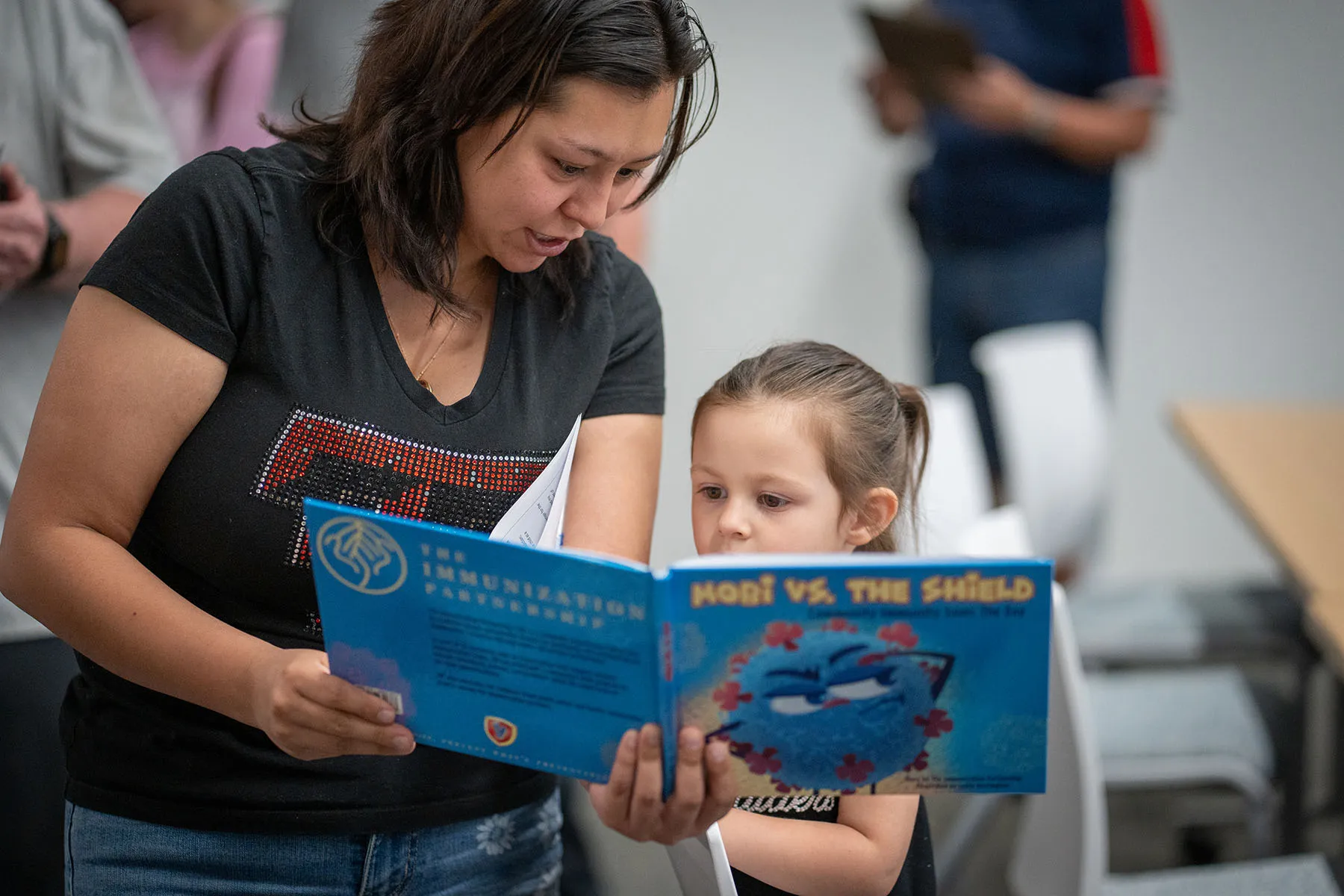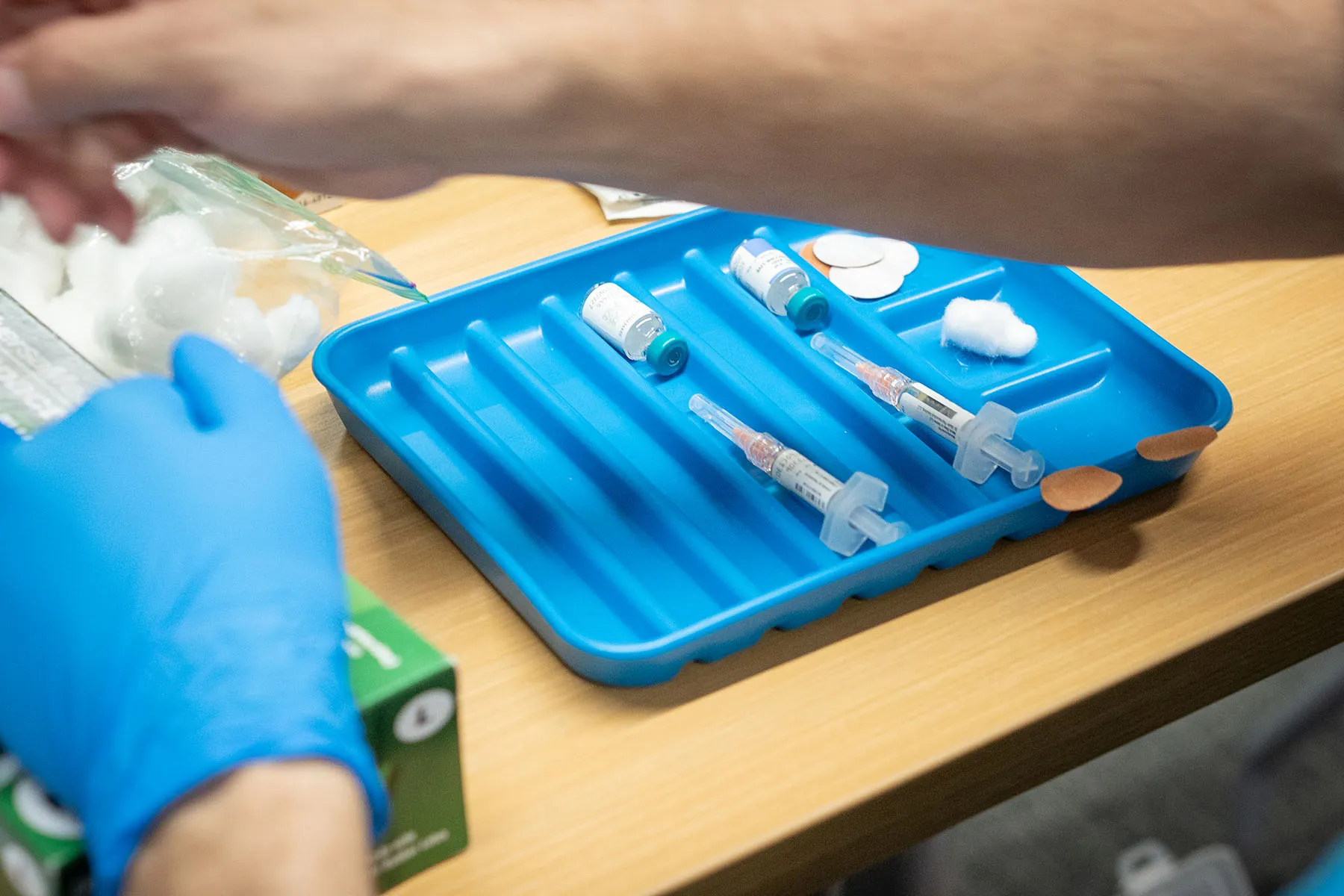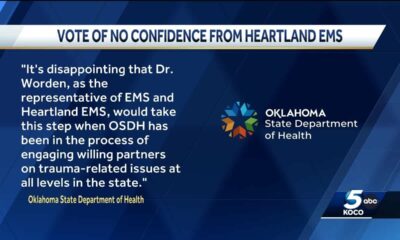Mississippi Today
‘More than just a red state’: In the home of the Civil Rights Movement, a fight for a free Palestine

On a brisk day last December, Ray Nacanaynay and Lea Campbell stood at a busy intersection in Gulfport.
Nacanaynay, an Air Force veteran and member of Veterans for Peace, invited Campbell, the founding president of Mississippi Rising Coalition, to join him at his first protest for the war on Gaza.
“He said, ‘I’m going to take my Veterans for Peace flag and a ceasefire sign, and I’m going to go stand at the intersection of Highway 49 and Highway 90 in Gulfport, and I would love for you to stand with me,’” said Campbell. “And I did.”
The protest grew into a weekly vigil for Gaza in Gulfport’s Jones Park. The initial actions were small — just Nacanaynay and Campbell. But soon, other organizers and students began to join them.
“It started to grow,” said Campbell.
Nacanaynay and Campbell are just two of scores of Mississippians who have been protesting the war on Gaza over the past year. October marks one year since Palestinian militant group Hamas carried out a surprise attack on Israel in which they killed about 1,200 people and captured 251 hostages. Since then, Israel’s subsequent ground invasion and bombardment has killed over 41,000 Palestinians in Gaza, many of them children, and displaced 90% of Gaza’s population.
Israeli Prime Minister Benjamin Netanyahu says the objective of this invasion is to eliminate Hamas. But a number of international human rights organizations have called Israel’s offensive a genocide, including a United Nations Special Rapporteur.
As the crisis worsened, organizers across Mississippi began planning events to protest U.S. policies that support Israel’s attack on Gaza, to mourn the lives lost, and to educate the public about the history of struggle for the land. Meanwhile, Mississippi lawmakers re-affirmed the state’s financial support for Israel.
And Mississippians have struggled to find common ground, grappling with the different, at times conflicting meanings of the centuries-old conflict for the state’s citizens.
Rabbi Eric Gurvis of Jackson’s Beth Israel Congregation cautioned that violence in the Middle East is “so complicated on so many levels.”
Gurvis, who believes there should be a Palestinian state, says that Israel is fighting a war against an enemy, Hamas, that rejects its right to exist.
“When Israel says we’re going to defend our citizens and try to stop those who are seeking to perpetrate the end of our existence, that’s not genocide,” Gurvis said. “That’s self defense.”
“There has to be a partner who will say, yes, there has to be an Israel as well.”
Others say the conflict is not so complicated.
Emad Al-Turk, a Palestinian-American Mississippian, said that with the war in Gaza, “Israel intends to ethnically cleanse and get rid of the indigenous people of Palestine.”
He finds himself pushing through despite the challenges to keep fighting. “For their sake, for their liberation, I try to push myself to find whatever strength I have to make sure we continue this fight.”

Where does Mississippi stand?
In the state of Mississippi, where lawmakers have consistently been vocal about their support for Israel, organizers say they have faced an uphill battle engaging people on the consequences of U.S. economic and military aid to the Middle Eastern country — for both Mississippians and Palestinians.
On Oct. 13, U.S. Secretary of State Antony Blinken and Defense Secretary Lloyd Austin issued a written ultimatum warning Netanyahu’s government to alleviate the humanitarian crisis in Palestine within 30 days or face potential reductions in U.S. military support. The letter specified that Israel must allow at least 350 trucks to enter Gaza each day and institute pauses in fighting to enable the distribution of aid.
But the very same day, the U.S. promised to send Israel a missile defense system and troops to operate it. Since October 2023, the U.S. Congress has enacted legislation providing Israel with more than $12.5 billion in military aid.
Nacanaynay’s organization, Veterans for Peace, wrote a letter to U.S. State Department officials in February saying the country’s military support of Israel violates U.S. law, including the Leahy Law, which bars the provision of arms to foreign powers that have committed “gross violations of human rights.”
In April, Mississippi lawmakers voted to extend the Israel Support Act, a 2019 law prohibiting the state from investing in businesses that boycott Israel.
The law also authorized the Mississippi treasury to increase its initial $20 million investment in Israeli bonds up to $50 million. The state has earned over $2.2 million in interest from the bonds, according to the state treasury.
Spokespeople for House Speaker Jason White and Lt. Gov. Delbert Hosemann did not respond to requests for comment.
However, not all elected officials have lent unconditional support to Israel’s actions. Democratic 2nd District U.S. Rep. Bennie Thompson, for instance, was one Mississippi congressman who signed an open letter in December 2023 along with 10 other members of Congress, urging for a bilateral ceasefire.
“Too many innocent lives have been lost already. The bloodshed must end,” the letter said.
And though the Israel Support Act passed both chambers of the Mississippi Legislature with a significant majority, it drew criticism from some lawmakers.
During House debate on April 3, Rep. Jill Ford, R-Madison, cited the biblical verse in Genesis, saying, “God will bless those that bless Israel and curse those that curse Israel.”
But Rep. Daryl Porter, D-Summit, responded that Mississippi lawmakers have neglected other scriptural instructions.
“Are you aware that the Bible also tells us to do a lot of stuff, like take care of the sick, feed the hungry, take care of the poor, and we fail to do that in this body?”
Candace Abdul-Tawwab, a Jackson-based organizer who protested against the law when it was first proposed in 2019, echoed that she objects to Mississippi’s ongoing financial support of Israel when there are so many needs closer to home.
“They’re sending our money to this country that’s committing these atrocities, when Mississippi is one of the poorest states in the nation.”
Finding common ground
Aala’a Matalgah, an Ole Miss student of Arab origin, grew up in Mississippi. She remembers seeing pictures and videos of Gaza even as a child. But she also remembers feeling frustrated when no one else at school knew what she was talking about when she would mention it. “It was shocking because I was like, how can something be so intense, and so many people don’t know about it?”
Everything changed in October 2023. “Now,” Matalgah said, “every single person knows what Palestine is.”
Gurvis described the war as “horrific.”
“I wish that every innocent Palestinian mother, father, child, grandparent that has died were not dead,” he said. “They’re human beings. They’re created in the image of God, just like us.”
With Palestine in the spotlight, organizers said they have had to challenge ingrained narratives and pervasive stereotypes about Muslims and people of Arab origin.
“We’re really fighting against the prevailing anti-Muslim narrative,” said Campbell. “The prevailing narrative in the South is that Muslims are terrorists … we’re really having to unpack and deconstruct that narrative and lack of awareness, and that’s very challenging.”

At one of Nacanaynay’s vigils, when he was holding a sign that said “Boycott, Divest, Sanction Israel,” a man drove up by the sidewalk and told him, “Go to effing Palestine.”
Still, in a state protective of its veterans, Nacanaynay, who moved to Mississippi from Washington state in 2023, feels he is positioned to “do much more than a lot of other people” to organize for Palestine.
“Maybe someone sees me holding a sign or shares a few words with me, and that’s what changes them,” he said. “That’s what turns them around.”

Credit: Mukta Joshi/Mississippi Today
During a pro-Palestine protest at Ole Miss in May, a white counter protester made monkey noises at a Black student participating in the protest. The counter protester’s fraternity, Phi Delta Theta, removed him from membership, while the university opened an investigation into his conduct.
Kristin Hickman, assistant professor of anthropology and international studies at the University of Mississippi, said in her personal capacity that she was “incredibly impressed” by the students’ persistence in organizing around Palestine, despite the racist backlash they faced.
Matalgah, a member of University of Mississippi for Palestine, expressed a sense of sadness at the counter protestors’ behavior.
“They didn’t know anything about Palestine or Israel,” she said. “They were just there because they hated us.”
But she also recounted a moment where both sides realized they had something in common.
“They were, at one point, chanting ‘Fuck Joe Biden!’ And we looked at them and we started chanting it back because obviously…fuck Joe Biden! And they were so confused — they all got quiet for a second.”
From Gaza to Mississippi, a shared story
Terron Weaver, who has been door-knocking and holding teach-ins in northern Mississippi and Jackson as a member of the Party for Socialism and Liberation, said his organizing boils down to an experience many Mississippians share: “Not getting a fair shake in life.”
Weaver said he’s had considerable success “just bringing those conversations to people.”
“People are not necessarily conservative,” Weaver said. “I think that people here are just oppressed.”
He said that many Black Mississippians he’s spoken with identify with Palestinians’ experiences.
“Most Black people here know what it’s like to live basically in a police state and that type of oppression,” Weaver said. “I don’t think I’ve met another Black person that I’ve had a conversation with on Palestine…that they don’t resonate with it in some way.”
Al-Turk, whose relatives from Gaza have been repeatedly displaced in the past year, described how Palestinians in the occupied territories must display different license plates than Israelis. They must take meandering, poorly maintained roads littered with checkpoints, separate from smoother, direct routes reserved for Israelis. Human rights organizations, including an Israeli group, B’Tselem, and an independent human rights expert of the United Nations, have termed the system made up of such differential rights for Israelis and Palestinians an apartheid.
These experiences, Al-Turk said, have parallels in the liberation struggles of Black Americans and Black South Africans, and even the Irish movement for independence.
“It’s all the same,” he said. “It’s seeking dignity and being recognized as an equal human being who has all the rights that others who live in that land are entitled to. That is not endowed by government, but it is endowed by our creator.”
Many also see parallels with the Holocaust.
Sophia Williams, an Army veteran and a native Mississippian of German descent, found out two months ago that a distant relative had served as a Nazi guard in Dachau. As she connected the dots, she struggled with feelings of shock that slowly combined with horror.
“I wondered, how could the Holocaust have happened?” Williams said. She felt like she was forced to grapple with this question twice: while processing her discovery about her family history and their role in the atrocities committed on Jews in Germany, while simultaneously watching the news over the past year.
“Unfortunately, I’m getting the answer now,” Williams said. “The pattern that I’ve seen is one of dehumanization.”
Many Mississippians consider it even more important to organize for Palestine, given its history.
“This is the seat of the civil rights movement,” Abdul-Tawwab said. “This is in our spirit. This is in our soul. So why would we not join in the fight for Palestinians? This is part of our legacy here. We’re fighting for ourselves, and at the same time fighting for them.”
“To me, the most important point is this: neither apartheid nor segregation are acceptable anywhere, at any time, under any circumstances,” said Hickman. “Israel does not have the right to impose a system of apartheid on Palestinians. Southern readers should understand that better than anybody else.”
Many have fond memories from this past year of coming together in an attempt to build community.
Maya Purohit, a student at Mississippi State University, remembers one moment in particular that took place at a vigil in October 2023, when the names of Palestinian victims were being read out.
“Everyone in the room was just overcome with this wave of grief, and love as well, for strangers across the world that you don’t even know. Everyone was either in tears or bawling. It was crazy, yet beautiful,” Purohit said.
“And that really gave me hope that, okay, there are people all the way across the world who care for this cause. Even in a place like Mississippi, where we’re not really known to be progressive or to be super empathetic to people who don’t look like the average cis white person, heterosexual person.”
Hickman emphasized that while many Mississippians might think of the violence in the Middle East as something that’s happening “far away,” there are university students, some of whom were raised in Mississippi, who are Palestinian.
“This is not a ‘far away’ issue for them,” Hickman said. “Their family members are getting killed with the help of American tax dollars.”
Margaret Lawson, an archivist of queer history in Mississippi, highlighted the importance of recognizing the multitudes even within rigid political spaces.
“If you look at an electoral map, you see a red state,” they said. “But our state is much more diverse than that. Mississippi is the Blackest state in the nation. Jackson is the Blackest city in the Blackest state in the nation.”
Lawson expressed the need to honor the views not just of the privileged few, but also those whose demands are not being met by their governments.
“That is a part of Mississippi’s story, too,” Lawson said.
This article first appeared on Mississippi Today and is republished here under a Creative Commons license.![]()
Mississippi Today
Proposed legislation aims to protect Mississippi River fisheries
Proposed legislation aims to protect Mississippi River fisheries
A new congressional bill aims to improve fisheries and environmental quality in the Mississippi River basin with a federally funded commission.
“This is a bill that’s way past its due,” said U.S. Rep. Troy Carter Sr. D-Louisiana, who is co-sponsoring the Mississippi River Basin Fishery Commission Act of 2025 with U.S. Rep. Mike Ezell R-Mississippi. It was introduced Feb. 24 in the House Committee on Natural Resources.
The goal is to fund grants for habitat restoration, fisheries research and the mitigation of invasive species.
It aims to support the growth of the fishing industry throughout the basin, as well as reinforce partnerships between local, state and federal agencies involved in the management of the river and its tributaries. The commission would be federally funded, and draw down on federal dollars to support restoration projects and fisheries management.
“The Mississippi, a mighty, mighty estuary, is not only a major tool for moving commerce back and forth, but it’s also a place where people make a living, fishing on the river,” Carter said. “This bill endeavors to make sure that we are protecting that asset.”
While commercial fishing has declined in recent decades, and updated research is necessary to establish the exact value of recreational, commercial and subsistence fishing in the Mississippi River, one study valued it as a billion dollar industry.
“The Mississippi River Basin is not just a geographical feature — it’s the backbone of our economy, a provider of jobs, and a sanctuary for our nation’s anglers and wildlife,” Ezell said in a news release. “This commission will ensure we’re taking a proactive approach to conservation, management, and sustainability, securing this resource for generations to come. Healthy fisheries mean a stronger economy and better opportunities for those who depend on the river for their livelihoods. This is about securing our natural resources while supporting hardworking families.”
The river has long faced challenges, such as industrial and agricultural pollution, habitat destruction and prolific spread of invasive species. Part of the difficulty in addressing these problems comes from the sheer size of the basin, with its geography covering over a third of the continental United States.
“For decades, states have struggled to find dedicated resources to adequately manage large river species that cross many state, federal, and tribal jurisdictions,” Ben Batten, deputy director of Arkansas Game and Fish Commission and chair of the Mississippi Interstate Cooperative Resource Association, said in a press release.
Large river species, such as invasive carp, are a problem the new commission would address, building on the work of the interstate cooperative, a multistate, multi-agency organization formed in 1991 that has focused on reducing invasives. The four varieties of carp originating from Asia – silver carp, black carp, grass carp and bighead carp – have spread at alarming rates and harm existing fisheries.
Communication amongst the numerous jurisdictions in the basin — states, cities, towns and tribal entities — can be difficult. Collaborative groups encourage more cohesive policy between basin states, such as the Mississippi River Cities and Towns Initiative and the Upper Mississippi River Basin Association, and there have been efforts to pass a river compact.
The United States and Canada share a partnership through the Great Lakes Fishery Commission. The Mississippi River Basin Fishery Commission would be part of the Department of the Interior, and include other agencies, like the U.S. Geological Survey, Fish and Wildlife Service and Army Corps of Engineers.
Due in large part to a lack of standardized testing, and often limited resources, health experts and government agencies often offer conflicting advice as to whether fish from the Mississippi River are safe to eat. Fish advisories warning against consumption of fish in one area may not exist in neighboring states, varying from one side of the river to the other.
The bill authors request $1 million to launch the commission in 2026, then $30 million each year for the following three years
While many fish the Mississippi River for sport rather than to eat, some rely on the river as a source of food.
General health advice for eating fish caught from the Mississippi does exist, such as throwing back the biggest and fattiest fish, washing them before fileting, and broiling or grilling the catch to avoid certain pollutants.
Halle Parker and Mississippi Today contributed to this story. This story is a product of the Mississippi River Basin Ag & Water Desk, an independent reporting network based at the University of Missouri in partnership with Report for America, with major funding from the Walton Family Foundation.
This article first appeared on Mississippi Today and is republished here under a Creative Commons license.![]()
Mississippi Today
The 19th Explains: What parents need to know about the measles vaccine
The 19th Explains: What parents need to know about the measles vaccine
This story was originally reported by Barbara Rodriguez of The 19th. Meet Barbara and read more of their reporting on gender, politics and policy.
A measles outbreak involving more than 150 infected people in Texas has put a spotlight on the role of vaccines in treating preventable diseases — especially as childhood vaccination rates have declined for several years. A school-aged child who was not vaccinated and had no known underlying conditions died from the outbreak, according to Texas health officials.
Parents and caregivers, in particular mothers, make important health decisions for their families. Though it can impact people of different ages, measles is considered a childhood disease and unvaccinated children under 5 years old are among those who are most at risk for severe illness. Here’s what parents need to know about measles and vaccines.
What is measles? How serious is it?
Measles is a highly contagious airborne disease that spreads when an infected person breathes, coughs or sneezes. If you do not have immune protection from measles and you come into contact with a person who has been infected — or even if you enter a room where an infected person was in the previous two hours — it is highly likely you will get infected.
According to the American Academy of Pediatrics, symptoms for measles include:
- fever
- cough
- runny nose
- red, watery eyes
- a skin rash
Measles can make people very sick: 1 in 20 people get pneumonia; 1 to 3 in 1,000 people get brain swelling (encephalitis); and 1 in 1,000 people die. Children who are infected with measles typically stay home from school. And since symptoms can emerge over several weeks, parents could be out of work for a prolonged period of time to care for their child and keep them in isolation.
The recent death of a child who was infected with measles in Texas is the first measles death in the United States in a decade and the first measles death involving a child since 2003.

(Jan Sonnenmair/Getty Images)
How do you prevent measles?
Vaccination is the key to measles prevention. Routine childhood vaccination provides 97 percent protection from measles through the measles, mumps and rubella (MMR) vaccine. Following the childhood vaccination schedule, which is reviewed by multiple medical organizations, helps prevent hospitalization, long-term injuries and death.
Because the disease is so contagious, community protection from measles requires at least 95 percent immunity to prevent outbreaks.
How often do measles outbreaks happen in the United States?
The widespread use of vaccines has meant that measles has not been common in the United States — so much so that it was declared eliminated from the country in 2000.
That has changed as parents increasingly decline to vaccinate their children, with emerging instances of measles outbreaks, which involve three or more cases. In 2019, there was an uptick in measles cases, with a major outbreak reported in New York. In 2023, there were four outbreaks. In 2024, there were 16 outbreaks. Three months into 2025, there have been three outbreaks reported.
Measles still regularly occurs in many parts of the world, said Dr. Lori Handy, associate director of the Vaccine Education Center at Children’s Hospital of Philadelphia. There has always been a risk that an unvaccinated child in the United States could be infected with measles from an international traveler who enters the United States. But the risk is greater now amid lower vaccination rates in kindergarten-age children.
“As a parent, it’s important to update that framework — that this is no longer the rare, ‘international traveler brings measles back home to a highly vaccinated country.’ This is now people within our own country have measles, and we have an under-vaccinated population, and so we are likely to see more spread in more regions,” she said.
I am vaccinating my child according to the childhood vaccination schedule. How worried should I be about outbreaks?
It depends on the age of your child and whether they are old enough to get the MMR vaccine. The first dose is administered between 12 and 15 months old and is 93 percent effective against measles. The second dose, which is administered between 4 and 6 years old, can add an additional 4 percent of immunity.
If you and your family are fully vaccinated, you can go about your routine activities, according to Handy. If you are vaccinated but you have a young child who is not old enough to receive an MMR shot, you should make sure that the people around the child are vaccinated. People transmit measles to other people only when they are showing symptoms of the viral infection.
“A fully vaccinated parent has a very, very low risk of getting infected with the measles
virus, and therefore should not be a risk to their infant,” Dr. John Swartzberg, clinical professor emeritus at the UC Berkeley School of Public Health, said in an email.
It is important to be aware of outbreaks in your region. Handy said if you live in an outbreak area, be very cautious about bringing a young child who is not yet vaccinated to crowds — or avoid it if at all possible. If you find out your child has been exposed, immediately call their pediatrician to learn about post-exposure care that can be taken to prevent infection.
At a community level, ensure your friends and family are aware of outbreaks and the importance of vaccination to protect themselves, their children and their community.

(Jan Sonnenmair/Getty Images)
Can my child receive an MMR shot early?
Some children who are traveling abroad can get an MMR shot as early as six months old, but it could still require two doses later. Parents should consult their pediatrician.
Handy added that there can be unusual circumstances; she gave the example of a parent with an 11-month-old traveling into a state or region with an outbreak for a social event like a wedding. That child is on the cusp of being old enough to receive the first dose of the MMR vaccine and may be able to get the shot early even though they’re not traveling abroad.
“That’s kind of the one-on-one conversation families will have to have with their care provider,” she said.
Swartzberg said that the most important thing a parent can do is make sure everyone who lives in or visits their home is vaccinated against measles.
“If someone is ill with a respiratory infection in the household, they should wear an N95
mask and stay away from the infant,” he added.
Children who have received their first MMR shot can receive the second as early as 28 days after the first dose, which may be the best option for people who live in or travel to outbreak areas or are traveling internationally. Handy said a second MMR dose helps individuals who may not have responded to the first dose. About 7 out of 100 people do not become immune after one dose; the second dose brings this down to 3 out of 100.
Handy again recommends that parents talk to their pediatricians about the best course of action.
“Related to the immunization schedule, I think the most practical information that people should have is that the way it’s designed right now is to give your child the best protection at the earliest time we can safely give vaccines. And with that in mind, deviation from that should be the exception,” she said.
I’m an adult but I’m not sure about my vaccination status. How can I check if I’ve had the measles vaccine?
If you were born before 1957, you have immunity due to the natural spread occurring then. If you were born after 1957 and have access to your records, check these. Most individuals vaccinated after that time will be protected except for a group of people who received a certain type of vaccine prior to 1968. If you do not have access to your records, you can ask your doctor to check your immunity through bloodwork to see if you need a dose of the vaccine.
The MMR vaccine gives long-lasting protection. No booster is needed, including for parents of young children, said Dr. William Schaffner of Vanderbilt University.
“The vaccine is extraordinarily effective,” he said.
I’m pregnant. What should I know about measles?
To date, most adults have received the MMR vaccine. A person who did not get the vaccine during childhood should make a plan to get it before they become pregnant by at least a month. If they do not, they should wait until after their pregnancy because the MMR vaccine is a live virus vaccine.

(Jan Sonnenmair/Getty Images)
Amid the declining rates of childhood vaccination and the measles outbreak, how should I discuss this topic with my family, friends and community if I’m not sure about their vaccination status?
Handy said that while she hopes parents and others make decisions about vaccination based on the science and one-on-one conversations with their health care providers, she knows people can be convinced to get vaccines because of their social groups. She encourages parents to have honest conversations with fellow parents.
“Help people realize, ‘This is important to me. This is what I do,’” she said. “A lot of people have a lot of questions, and they kind of want to understand what’s socially normal here.”
Handy said parents can also direct fellow parents to medical professionals.
“Recommend they talk with their health care provider to figure out, ‘Where’d you get that information? And how is that helping or potentially harming your child?’” she said. “Because your health care provider is keeping up on all of the science behind vaccines and kind of can help with myths or questions.”
Schaffner also encouraged open conversations between parents, particularly those having play dates. His biggest concern is in outbreak regions for now.
“You’re entitled to ask those other moms or dads, for that matter: ‘If your Susie wants to play with my Johnny, is your Susie vaccinated?’” he said.
Department of Health and Human Services Secretary Robert F. Kennedy Jr. has a history of anti-vaccine activism that came up during his Senate confirmation hearings What has he said about the outbreak?
Kennedy’s political ascension as a one-time presidential candidate and now as the head of the federal health department comes from a platform of promising to “Make America Healthy Again” through policy that purports to address children’s health issues. The messaging has resonated with some parents, while others are skeptical given Kennedy’s lack of formal medical and science training and years of anti-vaccine activism.
During his first public remarks on the Texas outbreak, Kennedy said measles outbreaks are “not unusual” — a description that drew criticism from some health experts because the number of cases related to this outbreak is particularly high. Kennedy also did not mention vaccination.
A few days later, Kennedy posted an op-ed where he more clearly acknowledged the severity of the outbreak and the need for vaccination.
“Parents play a pivotal role in safeguarding their children’s health. All parents should consult with their healthcare providers to understand their options to get the MMR vaccine. The decision to vaccinate is a personal one. Vaccines not only protect individual children from measles, but also contribute to community immunity, protecting those who are unable to be vaccinated due to medical reasons.”
There is a lot of information being shared online about vaccines. Where can I get factual information?
Handy recommended that parents review information available on the Vaccine Education Center at Children’s Hospital of Philadelphia, which provides information on vaccine science, including its safety. She also noted the American Academy of Pediatrics has guides on vaccination, as does the American Academy of Family Physicians.
“Parents can look to those sites and see, where are those organizations potentially diverging from some other messaging in MAHA?” she said. “We really should be looking to those who have spent decades, if not centuries, protecting children and rely on that information.”
This article first appeared on Mississippi Today and is republished here under a Creative Commons license.![]()
Mississippi Today
Latest Mississippi inmate to flee prison is another repeat escapee

Weeks after the escape of two men from separate Mississippi prisons, the search continues for a 71-year-old man convicted of capital murder who escaped the Mississippi State Penitentiary earlier in the week.
Nevin Whetstone, who is serving life for the 1983 murder of Loretta Darlene Steele in Lee County, was last seen Tuesday, prison officials said.
This is not the first time he has escaped incarceration. Whetstone received a one-year sentence for escaping from the Sunflower County Jail. He also tried to escape Parchman in 1988 with another man by climbing a fence behind a reception unit, according to the Associated Press.
A spokesperson for the Mississippi Department of Corrections declined to comment Wednesday about details of how Whetstone escaped, how prison staff discovered his absence and whether a lack of staffing was a contributing factor.
Staffing has been a problem at Parchman and across the state’s prisons for years. The agency’s 2023 annual report, the most recent published online, lists 275 filled security positions at Parchman, but 430 positions are authorized. That resulted in an inmate to staff ratio of 8.6.
Whetstone has been in prison since 1984 after pleading guilty. Because he was sentenced before July 1994, his life sentence is parole eligible.
In 2023, he was denied parole and given five years before he can be considered again, in 2028, according to an advocate who has worked with him. To date, Whetstone has been denied parole at least eight times. An MDOC spokesperson did not confirm whether Whetstone is parole eligible.
Whetstone has been housed in Unit 31, Parchman’s medical unit, according to prison records. The advocate added that he has used a walker, which an MDOC spokesperson declined to comment about.
Whetstone’s escape comes months after at least two prison escapes in December.
On Christmas Eve, Drew Johnson escaped the South Mississippi Correctional Facility and was found a day later in Greene County. The 33-year-old is serving a life sentence for murder, and after the escape he was moved to Walnut Grove Correctional Facility.
Gregory Trigg, sentenced to 61 years on nine counts including armed robbery, kidnapping and burglary committed in the Jackson metro area, escaped Parchman Dec. 9 and was found days later in Tulsa, Oklahoma. The 46-year-old was returned to prison and moved to Walnut Grove.
This year, a bill has been proposed to require local law enforcement and the Mississippi Bureau of Investigation to be immediately notified about any prison or jail escape and once the person is apprehended. The legislation awaits a vote by the Senate.
In the past decade, there have been at least 50 people in MDOC prisons and assigned to community work and restitution centers who have escaped, with a majority returned to custody afterward. About half of those escapes have been since 2020.
Whetstone is among those who have escaped Mississippi prisons more than once.
Trigg, who escaped last year, previously escaped from the Scott County Jail in 2017 while he was being held there on a court order, according to a MDOC news release from the time.
Former Parchman inmate Ryan Young, who fled from court in Meridian in December 2023, was arrested five days later in Texas.
He previously escaped the prison in 2017 with James Sanders. Young was found in Mound Bayou and Sanders was arrested in Arkansas. Not long after their return to prison, Sanders was moved to East Mississippi Correctional Facility, and Young went to Walnut Grove.
Michael Wilson, who is serving a life sentence for nine charges including two murders, escaped SMCI in 2018 and was found a day later on the Coast. Years later in 2022, he escaped the Central Mississippi Correctional Facility and was found in Harrison County. His convictions are in Harrison and Jackson counties.
“While understaffing has not been directly attributed to the July 5 escape, it could be a contributing factor that ultimately affects public safety,” MDOC said in a July 2018 statement following Wilson’s escape.
“The department is committed to finding ways to address the understaffing problem, but until the wages, the necessary security positions are restored, and working conditions of the correctional officers improve, the state correctional system will continue to be at a disadvantage in carrying out its public safety mission.”
This article first appeared on Mississippi Today and is republished here under a Creative Commons license.![]()
-

 News from the South - Louisiana News Feed1 day ago
News from the South - Louisiana News Feed1 day agoRemarkable Woman 2024: What Dawn Bradley-Fletcher has been up to over the year
-

 News from the South - Florida News Feed5 days ago
News from the South - Florida News Feed5 days ago4 killed, 1 hurt in crash after car attempts to overtake another in Orange County, troopers say
-

 News from the South - Oklahoma News Feed6 days ago
News from the South - Oklahoma News Feed6 days agoOklahoma Department State Department of Health hit with no confidence vote
-

 News from the South - Virginia News Feed6 days ago
News from the South - Virginia News Feed6 days agoStorm chances Wednesday, rollercoaster temperatures this weekend
-

 Mississippi Today5 days ago
Mississippi Today5 days agoJudge’s ruling gives Legislature permission to meet behind closed doors
-

 News from the South - Arkansas News Feed6 days ago
News from the South - Arkansas News Feed6 days agoBeautiful grilling weather in Arkansas
-

 News from the South - Virginia News Feed4 days ago
News from the South - Virginia News Feed4 days agoProbation ends in termination for Va. FEMA worker caught in mass layoffs
-

 Kaiser Health News7 days ago
Kaiser Health News7 days agoA Runner Was Hit by a Car, Then by a Surprise Ambulance Bill










































